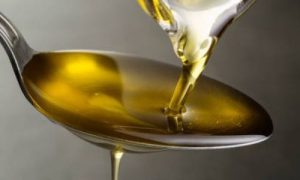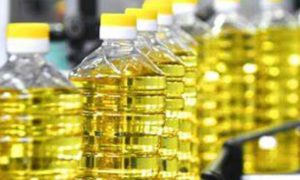Who are the top 10 importers in Bangladesh last year

Bangladesh’s fuel imports in 2023 amounted to Tk68,000 crore, 11% of total imports. Meghna Petroleum and Padma Oil led imports. Importers stress energy sector reliance on imports, anticipate growth in consumer goods imports in 2024. City Group’s Biswajit Saha notes domestic sugar production decline, calls for import reduction strategies. Economists advocate oilseed crop production boost and solar energy investment to cut import dependency.
Bangladesh last year spent Tk68,000 crore on fuel imports, accounting for roughly 11% of its total import expenditure of Tk6.2 lakh crore.
According to official data, the state-owned Bangladesh Petroleum Corporation imports the fuel through its four subsidiaries: Meghna Petroleum Limited, Padma Oil Company Limited, Eastern Refinery Limited and Jamuna Oil Company Limited.
The top 10 importers spent a total of Tk91,000 crore on imports, accounting for approximately 15% of the total import expenditure.
TK Group, Meghna Group, and City Group incurred the highest import expenditure for consumer goods. Coal Power Generation Company, which imports coal and power plant raw materials for its plant located in Cox’s Bazar’s Matarbari, is at the bottom of the top ten importer list.
According to the National Board of Revenue, Bangladesh imported goods from at least 215 countries in 2023. Nine of these countries accounted for roughly two-thirds of the imports, valued at Tk4 lakh crore. The countries were China, India, Indonesia, the United States, Brazil, Malaysia, Russia, Japan, and Singapore.
During the period from 1 January to 31 December in 2023, Meghna Petroleum imported 33,24,961 tonnes of fuel worth Tk20,932.45 crore.
Padma Oil Company Limited imported 32,225,523 tonnes of goods worth Tk20,140.63 crore, Eastern Refinery imported 33,33,800 tonnes of goods worth Tk14,167.79 core, Jamuna Oil Company imported 20,67,000 tonnes of goods worth Tk12,557.97 crore, Shabnam Vegetable Oil Industries imported 5,79,000 tonnes of goods worth Tk5,742 crore, Meghna Sugar Refinery Ltd imported 6,58,000 tonnes of goods worth Tk4,084.84 crore, Super Oil Refinery Ltd imported 3,04,000 tonnes of goods worth Tk3,506.26 crore, City Edible Oil Limited imported 3,43,000 tonnes of goods worth Tk3,372.85 crore, City Sugar Industries Limited imported 5,56,000 tonnes of goods worth Tk3,330 crore and Coal Power Generation Company imported 45,145 tonnes of goods worth Tk3,049.2 crore.
The two companies, Shabnam Vegetable Oil Industries and Super Oil Refinery Limited, both belonging to TK Group, imported goods worth Tk9,248 crore, consisting of 8.83 lakh tonnes.
City Edible Oil and City Sugar Industries Limited, both subsidiaries of the City Group, imported 9 lakh tonnes of goods worth Tk6,702.81 crore.
Importers say Bangladesh’s energy sector is entirely dependent on imports. Due to industrialisation, there is an increasing demand for electricity. Diesel is widely used in electricity generation. Consequently, the volume of fuel imports increases every year. In 2022, like in other sectors, fuel imports had decreased due to the dollar crisis. However, fuel imports are now beginning to return to normal levels.
Mizanur Rahman, assistant general manager of Meghna Group, told TBS that alongside the increasing demand for imports, the quantity of imports is also increasing.
Despite various crises such as the Covid-19 pandemic and the impact of the Russia-Ukraine conflict, global trade downturn, importation has not seen much growth over the past two to three years, he said.
“However, the situation is now beginning to normalise. Imports of consumer goods are expected to increase in 2024 compared to previous years,” Mizanur said.
Importers of consumer goods say the majority of their products are import-dependent. Among them, demand for edible oil and sugar are met almost entirely through imports. Due to these reasons, several industrial groups are particularly importing edible oil and sugar.
Currently, the groups importing sugar in the country include Meghna Group, City Group, S Alam Group, Abdul Monem, and Deshbandhu. These establishments also import edible oil. Additionally, alongside the TK Group, several other companies are involved in importing edible oil.
Importers of raw sugar have said that the government imposes a duty on sugar imports to encourage the domestic sugar industry. However, despite the duty, the domestic sugar industry has not been able to thrive. Every year, domestic sugar production continues to decline.
City Group Director (Corporate Affairs) Biswajit Saha told TBS that currently, annual sugar production in domestic factories has fallen below 50,000 tonnes. As a result, nearly a 100% of the demand for sugar now needs to be met through imports, he said.
Economists suggest alternative steps to cut import dependency
However, economists have suggested alternative measures to reduce dependency on imports for both fuel and consumer goods. They argue that a 100% import dependency poses a risk of disruption at any time. Instances of disruption in the supply chain have been observed during the Russia-Ukraine conflict and the time of the Covid-19 pandemic, they say.
Md Salim Uddin, president of the Institute of Cost and Management Accountants of Bangladesh, told TBS that to reduce dependency on imports for edible oil, the country needs to increase production of oilseed crops domestically. This would decrease pressure on forex reserves, he said.
“Similarly, investment in alternative energy, particularly solar power, could help decrease fuel imports,” Salim said.
Source Link : https://www.tbsnews.net/economy/who-are-top-10-importers-bangladesh-last-year-848811















